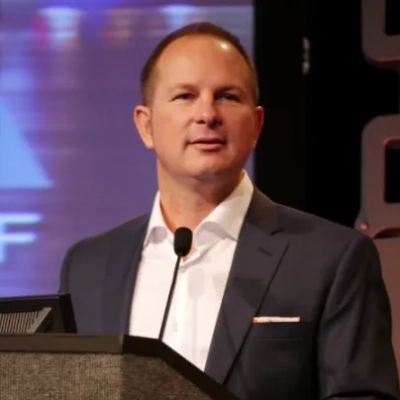What is one financial goal you achieved that you’re particularly proud of? What steps did you take to reach it, and what advice would you give others with similar aspirations? We asked 13 business leaders, and they shared inspiring stories and actionable advice.
- Paid Off Student Loans Quickly
- Built Six-Month Emergency Fund
- Achieved Positive Cash Flow
- Secured Funding for Expansion
- Reached $1 Million Revenue
- Saved 20% of Income Monthly
- Launched and Grew RIA Firm
- Set Up Solid Emergency Fund
- Increased Revenue by 30%
- Invested in Diversified Portfolio
- Secured Multimillion-Dollar Investment
- Signed Up for Retirement Plan
- Achieved 300% Revenue Growth
How to Achieve Your Financial Goals
Paid Off Student Loans Quickly
I know firsthand how overwhelming it can feel to have large amounts of student loan debt and that so many Americans share a goal of paying off that debt once and for all. After I graduated from law school, I paid off more than $200,000 worth of student loan debt in two years. I’m particularly proud of this achievement because committing to paying off my debt quickly saved me a lot of money. Had I stayed on the typical 10-year repayment plan path, the interest alone would have cost me more than $82,000, bringing my total repayment to almost $300,000.
One of the best moves I made to accomplish paying off my loans early was to shorten my loan term. Yes, this made my monthly payments higher, but it also lowered the amount of interest I would pay and kept me on track to pay off my loan quickly. Having a plan is key when it comes to paying off debt. Debt can be intimidating and very tempting to ignore, but facing it head-on makes getting debt-free so much easier.
I also chose to refinance my student loans with a lender who could offer me a lower interest rate. Using a
student loan refinancing calculator beforehand helped me understand how much I could save by lowering my rate and adjusting my repayment term. The less you spend on interest, the more your hard-earned money can go towards paying off the principal balance. A word of warning here: if you have federal student loans, you do lose access to federal protections when you refinance with a private lender. I felt this risk was worth it since I intended to pay off my loans in five years, which wouldn’t qualify me for forgiveness programs.
 Erika Kullberg
Erika Kullberg
Attorney, Money Expert, and Founder, Erika.com
Built Six-Month Emergency Fund
Setting SMART goals motivated me to tackle a financial milestone: building a six-month emergency fund for my business. I started by calculating the exact amount needed, then broke it into smaller monthly targets. Automating transfers to a high-yield savings account kept me consistent, even during tight months. Cutting unnecessary subscriptions and negotiating better vendor rates freed up extra cash without impacting operations.
Hitting this goal gave me peace of mind and flexibility to handle unexpected expenses. My advice? Treat savings as a non-negotiable expense and celebrate small wins along the way. Financial security doesn’t just protect your business—it empowers you to take risks and grow confidently!
 Alex Cornici
Alex Cornici
Marketing Manager, Feed Pic
Achieved Positive Cash Flow
One financial goal I’m particularly proud of was achieving positive cash flow within the first year of launching my business. In a highly competitive market, discipline and intelligent decision-making are required.
I focused on inventory management, balancing having enough stock to meet demand without over-ordering and tying up cash. We also prioritized high-margin products and reinvested early profits into marketing campaigns that yielded a strong ROI. Offering pre-orders on select items was another way we secured revenue upfront while managing inventory costs.
My advice is to start with clear financial metrics and monitor them religiously. Prioritize what drives immediate cash flow, whether upselling, reducing costs, or streamlining logistics. It’s not about cutting corners but making every dollar work smarter for your business. Staying adaptable and focused made all the difference for us, and it can be for you, too.
 Chris Putrimas
Chris Putrimas
CEO, Teak Warehouse
Secured Funding for Expansion
One financial goal I’m particularly proud of is securing funding to expand our online training programs. This allowed us to reach a wider audience and invest in better resources. I started by setting a clear financial target for the expansion to achieve this. I then created a detailed business plan to show potential investors how the funding would be used to grow the platform, enhance content, and improve marketing. I focused on demonstrating both short-term and long-term value, which helped build trust with investors.
I closely monitored our cash flow and expenses to ensure we were financially stable before pursuing outside funding. I also negotiated better terms with partners and suppliers to decrease costs and increase our margins. I advise others with similar aspirations to be patient, stay organized, and plan thoroughly. Break your larger financial goal into smaller, achievable steps, and always ensure you have a solid foundation before taking risks. Effective budgeting, transparent communication with stakeholders, and regular tracking of progress will set you up for success.
 Fawad langah
Fawad langah
Director General, Best Diplomats
Reached $1 Million Revenue
When I started my company, one of my proudest achievements was reaching $1 million in revenue without taking on any outside debt, which took careful planning and bootstrap mentality. I focused on reinvesting profits, kept overhead low by starting with a remote team, and maintained a healthy cash reserve before making any major expansions. I’d encourage others to focus on sustainable growth rather than quick scaling—it might feel slow at first, but building a strong financial foundation really pays off in the long run.
 Ryan Miller
Ryan Miller
Founder & CEO, Etna Interactive
Saved 20% of Income Monthly
My top priority is financial stability and being able to retire comfortably in the future. To achieve this, I set a goal of saving 20% of my income each month. This meant creating a budget and cutting out unnecessary expenses to prioritize saving. For instance, I started packing my lunch instead of eating out and canceled subscription services that I rarely used. I took on side hustles and freelance opportunities to increase my income and put more toward savings. I educated myself on different investment options and started investing a portion of my savings in low-risk stocks such as index funds and dividend-paying stocks.
My advice is to start small, create a budget, and find ways to increase your income through side hustles or investments. Be disciplined and stick to your savings goals, but also allow yourself some flexibility for unexpected expenses or splurges. This way, you can achieve financial stability and work towards achieving your long-term goals.
 Daniel Cook
Daniel Cook
HR / Marketing Executive, Mullen and Mullen
Launched and Grew RIA Firm
One financial goal I’m particularly proud of is launching and growing my own Registered Investment Adviser (RIA) firm. Achieving this required careful financial planning, setting aside enough capital to sustain the business in its early stages, and building strong relationships with clients. I focused on creating a clear value proposition and investing in technology to streamline operations and enhance client experiences. My advice to others with similar aspirations is to start with a solid business plan, prioritize building trust with clients, and be patient—success takes time and consistency. Don’t underestimate the importance of ongoing professional development to stay ahead in a competitive industry.
 Chad Lively
Chad Lively
Lead Financial Planner, Lively Financial LLC
Set Up Solid Emergency Fund
One financial goal I’m proud of is setting up a solid emergency fund while freelancing. The key was automating savings—every invoice payment, I funneled 20% straight into a high-yield savings account before touching the rest. It took discipline but gave me peace of mind during slow months. My advice: prioritize consistency over big leaps. Even small, regular contributions add up faster than you think.
 Tom Molnar
Tom Molnar
Operations Manager, Fit Design
Increased Revenue by 30%
One financial goal I’m particularly proud of was achieving a 30% increase in annual revenue by expanding into a new international market. To reach this, we conducted in-depth market research to identify demand, adapted our product offerings to meet local needs, and invested strategically in localized marketing campaigns. A key step was forming partnerships with local distributors, which reduced barriers to entry and accelerated our growth.
My advice for others is to break large goals into smaller, actionable steps and focus on data-driven decisions. Always allocate resources where they’ll have the highest impact and be prepared to pivot if initial strategies don’t work. Achieving financial milestones is less about big leaps and more about consistent, calculated progress.
 Cameron Lee
Cameron Lee
CEO, ACCURL
Invested in Diversified Portfolio
It was a huge win to finally get my savings invested in a diversified portfolio. Before that, I was sitting on cash and knew that I was losing buying power to inflation but hadn’t really calculated how much gain I was missing from investments. My advice is to start today. Open a brokerage account. Even if you only invest $100 you can start to figure out the mechanics and understand how it all works. Then, as your income and savings grow, you already know how to deploy the excess capital to work for you.
 Michael Alexis
Michael Alexis
CEO, Island Residency Solutions
Secured Multimillion-Dollar Investment
I would mention the financial goal I achieved was successfully securing a multimillion-dollar investment for my company. This achievement provided us with the necessary funds to expand and grow our business, which solidified our company’s position in the market.
The first step I took was thoroughly researching potential investors and identifying those who would align with our company’s vision and goals. This involved networking, attending industry events, and leveraging my personal connections. I reached out to my mentors and former colleagues who had connections with potential investors.
Once potential investors were identified, I prepared a comprehensive pitch deck that highlighted our company’s strengths, growth potential, and financial projections. I made sure to clearly articulate how their investment would benefit both parties in the long run. For example, I emphasized our plans for future expansion and how it would lead to a high return on their investment.
My advice is to be persistent, strategic, and confident. The best way is to have a clear understanding of your company’s financial needs and be able to present them compellingly, such as highlighting how the investment will bring growth and success to both parties. For instance, outlining the potential ROI and how it aligns with the investor’s objectives.
 Max Avery
Max Avery
Chief Business Development Officer, Syndicately
Signed Up for Retirement Plan
Financial goals are important to spend and save money in both personal and professional life. In the long term, it can enhance your lifestyle, reduce debt, and plan for a comfortable retirement.
As for me, I’ve signed up for a retirement plan, which I’m particularly proud of. It will provide me with substantial savings once I stop working to fund my lifestyle easily. Before I started saving, I prepared a retirement goal. It can be done by determining the amount of money you’re willing to save from every paycheck you earn and then calculating your total savings.
The advice that I would give to others is to sign up for a retirement plan to enhance your financial security and get prepared for whatever comes after your career.
 Dhari Alabdulhadi
Dhari Alabdulhadi
CTO and Founder, Ubuy New Zealand
Achieved 300% Revenue Growth
We have been honored 11 times across the Inc. 5000, Inc. 5000 Regionals, and Financial Times 500 as a measure of business growth. In order to get listed a business must have at least 300% revenue growth annually, which is tough to do. The goal with these awards was to establish credibility for our marketing, but it became more than that. Friends, family, and my professional network paid attention to these honors.
So, if you aspire to achieve these financial goals, focus on the fundamentals of good business. Establish partnerships and a referral network. Have systems and processes in place to operate efficiently. Work with clients who will pay you on the value you bring them. Most importantly, develop grit and have the mindset that success comes with small daily improvements.
 Robert Brill
Robert Brill
CEO, Brill Media
 Erika Kullberg
Attorney, Money Expert, and Founder, Erika.com
Erika Kullberg
Attorney, Money Expert, and Founder, Erika.com
 Alex Cornici
Marketing Manager, Feed Pic
Alex Cornici
Marketing Manager, Feed Pic
 Chris Putrimas
CEO, Teak Warehouse
Chris Putrimas
CEO, Teak Warehouse
 Fawad langah
Director General, Best Diplomats
Fawad langah
Director General, Best Diplomats
 Ryan Miller
Founder & CEO, Etna Interactive
Ryan Miller
Founder & CEO, Etna Interactive
 Daniel Cook
HR / Marketing Executive, Mullen and Mullen
Daniel Cook
HR / Marketing Executive, Mullen and Mullen
 Chad Lively
Lead Financial Planner, Lively Financial LLC
Chad Lively
Lead Financial Planner, Lively Financial LLC
 Tom Molnar
Operations Manager, Fit Design
Tom Molnar
Operations Manager, Fit Design
 Cameron Lee
CEO, ACCURL
Cameron Lee
CEO, ACCURL
 Michael Alexis
CEO, Island Residency Solutions
Michael Alexis
CEO, Island Residency Solutions
 Max Avery
Chief Business Development Officer, Syndicately
Max Avery
Chief Business Development Officer, Syndicately
 Dhari Alabdulhadi
CTO and Founder, Ubuy New Zealand
Dhari Alabdulhadi
CTO and Founder, Ubuy New Zealand
 Robert Brill
CEO, Brill Media
Robert Brill
CEO, Brill Media







